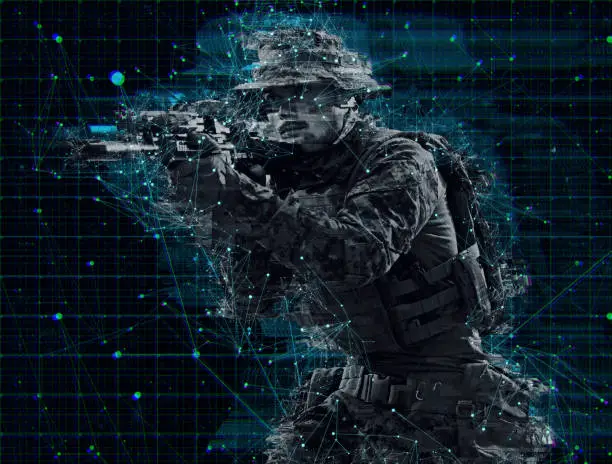Stealth and Strategy: The Role of AI and Electronic Warfare in Future Battles
March 13, 2025 – As global military forces evolve, the battlefield is shifting from traditional combat to high-tech warfare, where artificial intelligence (AI) and electronic warfare (EW) play a crucial role. Experts predict that future wars will rely less on brute force and more on stealth, precision, and strategic technological superiority.
AI-Powered Decision-Making
AI is rapidly transforming military strategy by enhancing decision-making capabilities. Modern AI systems can analyze vast amounts of battlefield data in real time, helping commanders make split-second tactical decisions. Machine learning algorithms predict enemy movements, identify vulnerabilities, and even suggest the best course of action.
“AI gives militaries a significant edge by reducing human errors and enabling quicker responses,” says defense analyst Dr. Robert Hayes. “In future conflicts, victory may depend on which side has the smarter, more adaptable AI system.”
Electronic Warfare: The Invisible Weapon
Electronic warfare has long been a silent but powerful tool in modern combat. It involves disrupting enemy communication, jamming radar signals, and hacking into enemy networks. In recent conflicts, electronic warfare has been used to disable drones, mislead enemy forces, and even shut down entire defense systems.
The rise of cyber warfare means that future battles could be won without a single bullet being fired. Countries are investing heavily in electromagnetic spectrum operations, ensuring they can control or neutralize enemy systems remotely.
Drones and Autonomous Weapons
AI-powered drones are already playing a crucial role in military operations. Unlike traditional fighter jets, autonomous drones can fly for extended periods, conduct surveillance, and even execute attacks without human intervention.
Military strategist Lt. Gen. Mark Stevenson notes, “The combination of AI and electronic warfare allows us to strike with precision while remaining undetected. This shifts the power dynamics of modern warfare significantly.”
Ethical and Security Concerns
Despite its advantages, the increasing reliance on AI and electronic warfare raises ethical concerns. Autonomous weapons could make lethal decisions without human oversight, leading to unintended consequences. Additionally, the risk of AI-driven systems being hacked or manipulated by adversaries remains a major concern.
Governments and defense organizations worldwide are working to establish regulations on AI in warfare, but the technology is advancing faster than policies can keep up.
The Future Battlefield
As AI and electronic warfare continue to evolve, the battlefield of the future will be defined by intelligence, stealth, and electronic dominance. Nations that master these technologies will hold the upper hand, shaping military conflicts in ways never seen before.
While traditional warfare may never fully disappear, the silent war waged through algorithms and electromagnetic waves will likely become the defining feature of 21st-century combat.




